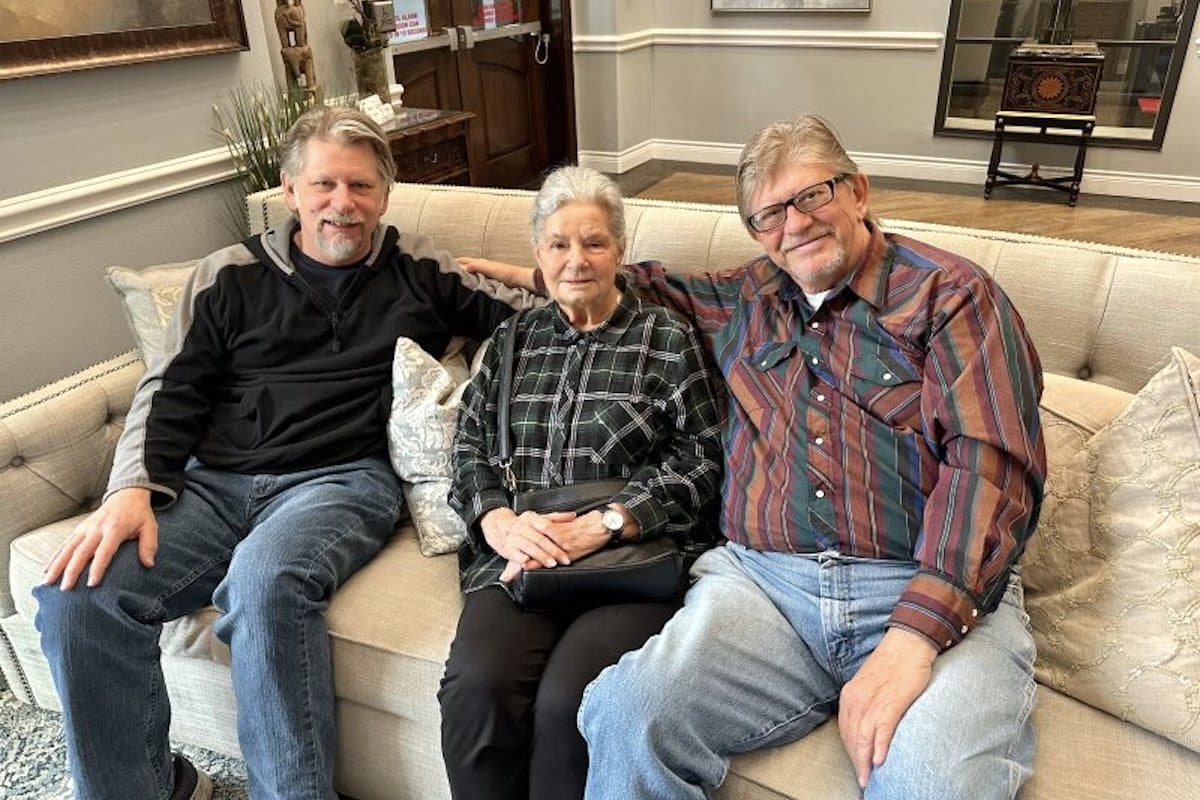Memory Care Facility Charlotte - The Facts
Memory Care Facility Charlotte - The Facts
Blog Article
4 Easy Facts About Memory Care Facility Charlotte Described
Table of ContentsWhat Does Memory Care Facility Charlotte Do?Memory Care Facility Charlotte - TruthsAbout Memory Care Facility CharlotteTop Guidelines Of Memory Care Facility CharlotteHow Memory Care Facility Charlotte can Save You Time, Stress, and Money.
The national average in 2024 is $5,350/ month. The expense of Alzheimer's treatment in assisted living communities is roughly 20-30% more. See the typical Alzheimer's treatment expense in your state. Mostly all taking care of homes or experienced nursing facilities are furnished to supply solutions for those with Alzheimer's or dementia. The majority of do not bill in addition given that fairly these people do not call for even more treatment than other assisted living facility homeowners.State daily standards range from $220 $1,137 a day. Sharing a house minimizes the cost to 10-20% of that for an exclusive space. Sadly, sharing a room is not constantly a choice for persons with hostile forms of mental deterioration. See each states' average nursing home treatment costs. Grown-up day care facilities, like assisted living home, typically do not bill additional charges for people with Alzheimer's or dementia.
For the majority of families, the expenses of caring for a liked one with Alzheimer's or dementia are covered not by a solitary resource, yet rather by payments from a variety of sources. Medicare, like most health and wellness insurance, does not set apart Alzheimer's and mental deterioration treatment from various other problems such as heart condition.
Medicare will certainly pay for 100% of the expense of nursing home care if it is medically necessary for 20 days and 80% of the cost for an added 80 days. If a specific with Alzheimer's calls for treatment in a psychiatric healthcare facility, Medicare boosts the variety of days they will offer support up to 190 days.
The Ultimate Guide To Memory Care Facility Charlotte
Medicare does not spend for custodial or personal treatment that is supplied in an assisted living residence. It will certainly pay for medical treatment offered in that area. The exact same obtains home care and grown-up day care. Personal treatment services, aid with the activities of day-to-day living and supervision that are generally required for Alzheimer's patients are not covered.
There is an exemption to this for people getting hospice treatment at home. Medicare will spend for homemaker services, that includes personal help for people identified to be in the last 6 months of their life. Medigap strategies, or Medicare Supplementary Insurance, does not particularly give additional benefits for Alzheimer's individuals.
 These policies usually pay the 20% of the price of nursing home care that Medicare does not pay - Memory Care Facility Charlotte. New in 2019, Medicare Benefit (MA) strategies are able to supply some long-lasting treatment solutions and supports as a supplemental health advantage, provided they: Make up for physical impairmentsDiminish the effect of injuries or health conditionsReduce preventable emergency clinic usage Instances of potentially readily available benefits, which can be really critical for persons with Alzheimer's, consist of: Adult day careHome alterations (wheelchair ramps, get hold of bars)Personal emergency situation response systemsRespite carePersonal care assistanceHomemaker servicesMeal distribution In 2020, MA plans are more expanded their extra advantages to help persistantly ill individuals
These policies usually pay the 20% of the price of nursing home care that Medicare does not pay - Memory Care Facility Charlotte. New in 2019, Medicare Benefit (MA) strategies are able to supply some long-lasting treatment solutions and supports as a supplemental health advantage, provided they: Make up for physical impairmentsDiminish the effect of injuries or health conditionsReduce preventable emergency clinic usage Instances of potentially readily available benefits, which can be really critical for persons with Alzheimer's, consist of: Adult day careHome alterations (wheelchair ramps, get hold of bars)Personal emergency situation response systemsRespite carePersonal care assistanceHomemaker servicesMeal distribution In 2020, MA plans are more expanded their extra advantages to help persistantly ill individualsThe requirement being that with the invoice of benefits, the treatment recipient has a decent possibility of renovation in health or working, or a minimum of preserving the very same degree of health and functioning. The brand-new benefits can be tailored to the specific needs of MA strategy enrollees. An elderly with Alzheimer's condition may be able to get roaming assistance solutions.
Memory Care Facility Charlotte Fundamentals Explained
Extremely few, require a particular diagnosis of Alzheimer's or dementia. Rather, they take into consideration one's capacity or lack of ability to look after themselves by accessing their capacity to do their activities of daily living. From a functional perspective, mid to late phase Alzheimer's people commonly certify for Medicaid benefits quite easily. For more details on Medicaid and each state's waivers, please use the complying with web links: General Medicaid, Home Care Waivers, Assisted Living Waivers, Adult Daycare Waivers, and Adult Foster Care Waivers.
While not especially developed for Alzheimer's clients, offered that lots of Alzheimer's client are not functioning, have low revenues and need day-to-day help, it is fairly typical for these individuals to receive these programs. See a complete listing of state non-Medicaid assistance programs. Along with the a lot more general support programs, numerous states have programs made particularly for people with Alzheimer's, dementia click this or associated problems.
They simply call for a diagnosis of Alzheimer's, dementia or various other related memory condition to get approved for the program. Reprieve treatment is short-term aid supplied to the main caretaker to allow them a break from looking after an individual with Alzheimer's or dementia. It can be supplied in the home, in a grown-up preschool, or often in an assisted living home or various other residential setting.
There are several different organizations and programs using reprieve treatment services. It is worth noting that many times these are home treatment companies selling home care and advertising and marketing it as respite care even though they are charging the full per hour price. There are additionally government financed programs that provide decreased rate or complimentary break treatment, such as the Life-span Reprieve Treatment, the National Family Members Caretaker Assistance Program, as well as programs particular to private states including Florida's Job R.E.L.I.E.F., New Jersey's Statewide Break Care, and Connecticut Statewide Break Care Program.
All about Memory Care Facility Charlotte
The Alzheimer's Foundation of America supplies "Family members Break Treatment Grants" by moneying local, charitable, member companies. These member organizations function directly with the family members to provide the gives. It is worth keeping in mind that regional organizations often combine funds with various other sources. The name "Family members Break Treatment Grants" may not constantly be utilized.
Really couple of, require a certain medical diagnosis of Alzheimer's or mental deterioration. Rather, they think about one's capability or lack of ability to care for themselves by accessing their ability to perform their activities of everyday living. From a practical viewpoint, mid to late phase Alzheimer's people generally qualify for Medicaid benefits rather quickly.
 While not specifically made for Alzheimer's clients, given that lots of Alzheimer's patient are not functioning, have reduced earnings and call for daily help, it is fairly typical for these people to qualify for these programs. See a full list of state non-Medicaid help programs - Memory Care Facility Charlotte. In addition see to the much more general aid programs, a number of states have programs developed especially for individuals with Alzheimer's, dementia or relevant problems
While not specifically made for Alzheimer's clients, given that lots of Alzheimer's patient are not functioning, have reduced earnings and call for daily help, it is fairly typical for these people to qualify for these programs. See a full list of state non-Medicaid help programs - Memory Care Facility Charlotte. In addition see to the much more general aid programs, a number of states have programs developed especially for individuals with Alzheimer's, dementia or relevant problemsThey simply need a medical diagnosis of Alzheimer's, dementia or other associated memory problem to qualify for the program. Break treatment is short-lived assistance supplied to the key caregiver to enable them a break from looking after an individual with Alzheimer's or dementia. It can be offered in the home, in a grown-up day care facility, or sometimes in an assisted living residence or other property setup.
The Basic Principles Of Memory Care Facility Charlotte
There are numerous different companies and programs supplying reprieve treatment solutions. It is worth noting that most of the times these are home care firms marketing home treatment and advertising it as break care although they are billing the complete per hour rate. There are also government financed programs that offer decreased rate or cost-free break care, such as the Lifespan Reprieve Care, the National Family Caretaker Assistance Program, as well as programs specific to specific states including Florida's Project R.E.L.I.E.F., New Jacket's Statewide Break Care, and Connecticut Statewide Reprieve Care Program.
The Alzheimer's Structure of America provides "Family members Respite Care Grants" by moneying local, non-profit, participant companies. The name "Family members Break Treatment Grants" might not always Recommended Reading be utilized.
Report this page